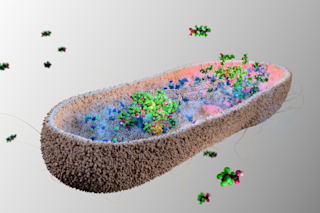A lab rat’s life is not a happy one, but for some it’s especially bleak. In March, a team of researchers announced that female rats were spurning males whose great-grandmothers had been exposed to the fungicide vinclozolin. The male rats were fertile and looked healthy; still, something about them—perhaps their smell—was a total turnoff. This suggests that pesticides and other hormone-disrupting chemicals not only may harm those who have close encounters with them, they may also affect mating behavior in later generations.
Reproductive neuroendocrinologist Andrea Gore and her husband, evolutionary biologist David Crews—both at the University of Texas at Austin—examined the sexual inclinations of 12 male and 12 female 90- to 120-day-old rats, great-grandchildren of females injected during pregnancy with vinclozolin by reproductive biologist Michael Skinner. Over the past two years Skinner, of Washington State University, showed that as male descendants of these rats aged, they developed sperm deficiencies, infertility, ...














